Related Research Articles
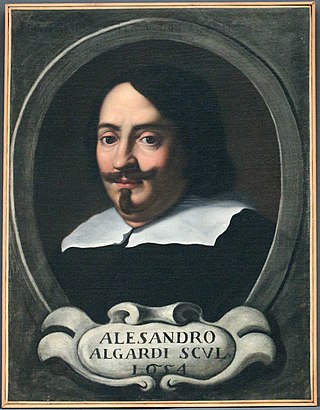
Alessandro Algardi was an Italian high-Baroque sculptor active almost exclusively in Rome. In the latter decades of his life, he was, along with Francesco Borromini and Pietro da Cortona, one of the major rivals of Gian Lorenzo Bernini, in Rome. He is now most admired for his portrait busts that have great vivacity and dignity.

Gian LorenzoBernini was an Italian sculptor and architect. While a major figure in the world of architecture, he was more prominently the leading sculptor of his age, credited with creating the Baroque style of sculpture.

Pope Innocent VIII, born Giovanni Battista Cybo, was head of the Catholic Church and ruler of the Papal States from 29 August 1484 to his death, in July 1492. Son of the viceroy of Naples, Cybo spent his early years at the Neapolitan court. He became a priest in the retinue of Cardinal Calandrini, half-brother to Pope Nicholas V (1447–55); Bishop of Savona under Pope Paul II; and with the support of Cardinal Giuliano Della Rovere he was made a cardinal by Pope Sixtus IV. After intense politicking by Della Rovere, Cybo was elected pope in 1484. King Ferdinand I of Naples had supported Cybo's competitor, Rodrigo Borgia. The following year, Pope Innocent supported the barons in their failed revolt.
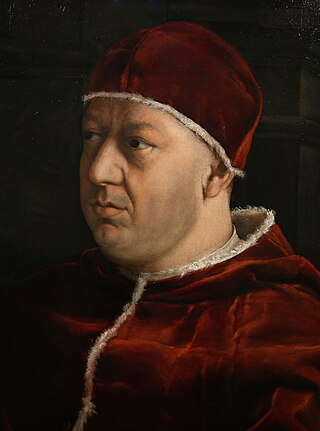
Pope Leo X was head of the Catholic Church and ruler of the Papal States from 9 March 1513 to his death, in December 1521.

Arnolfo di Cambio was an Italian architect and sculptor of the Duecento, who began as a lead assistant to Nicola Pisano. He is documented as being capomaestro or Head of Works for Florence Cathedral in 1300, and designed the sixth city wall around Florence (1284–1333).

The Apostolic Palace is the official residence of the Pope, the head of the Catholic Church, located in Vatican City. It is also known as the Papal Palace, the Palace of the Vatican and the Vatican Palace. The Vatican itself refers to the building as the Palace of Sixtus V, in honor of Pope Sixtus V, who built most of the present form of the palace.
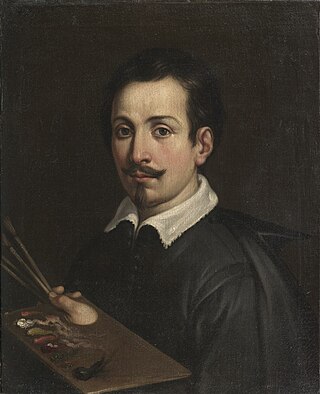
Guido Reni was an Italian painter of the Baroque period, although his works showed a classical manner, similar to Simon Vouet, Nicolas Poussin, and Philippe de Champaigne. He painted primarily religious works, but also mythological and allegorical subjects. Active in Rome, Naples, and his native Bologna, he became the dominant figure in the Bolognese School that emerged under the influence of the Carracci.
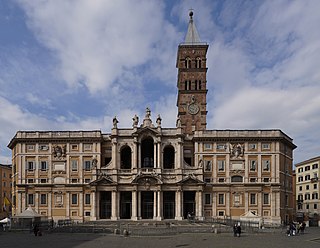
The Basilica of Saint Mary Major, or church of Santa Maria Maggiore, is one of the four major papal basilicas as well as one of the Seven Pilgrim Churches of Rome and the largest Marian church in Rome, Italy.

Santa Maria sopra Minerva is one of the major churches of the Order of Preachers in Rome, Italy. The church's name derives from the fact that the first Christian church structure on the site was built directly over the ruins or foundations of a temple dedicated to the Egyptian goddess Isis, which had been erroneously ascribed to the Greco-Roman goddess Minerva.
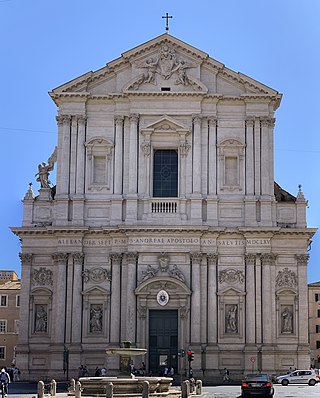
Sant'Andrea della Valle is a titular church and minor basilica in the rione of Sant'Eustachio of the city of Rome, Italy. The basilica is the seat of the general curia of the Theatines and is located on the Piazza Vidoni, at the intersection of Corso Vittorio Emanuele and Corso Rinascimento. It is one of the great 17th century preaching churches built by Counter-Reformation orders in the Centro Storico.

Giovanni Lanfranco was an Italian painter of the Baroque period.

Campo Marzio is the 4th rione of Rome, Italy, identified by the initials R. IV. It belongs to the Municipio I and covers a smaller section of the area of the ancient Campus Martius. The logo of this rione is a silver crescent on a blue background.

The Parish Basilica of Santa Maria del Popolo is a titular church and a minor basilica in Rome run by the Augustinian order. It stands on the north side of Piazza del Popolo, one of the most famous squares in the city. The church is hemmed in between the Pincian Hill and Porta del Popolo, one of the gates in the Aurelian Wall as well as the starting point of Via Flaminia, the most important route from the north. Its location made the basilica the first church for the majority of travellers entering the city. The church contains works by several famous artists, such as Raphael, Gian Lorenzo Bernini, Caravaggio, Alessandro Algardi, Pinturicchio, Andrea Bregno, Guillaume de Marcillat and Donato Bramante.

The Basilica of Saint Praxedes, commonly known in Italian as Santa Prassede, is an early medieval titular church and minor basilica located near the papal basilica of Saint Mary Major, on Via di Santa Prassede, rione Monti in Rome, Italy. The current Cardinal Priest of Titulus Sancta Praxedis is Paul Poupard.

Giovanni Battista Zeno , was the son of Niccolo di Tomà Zeno and Elisabetta Barbo, a sister of Pietro Barbo, who became Pope Paul II in August 1464. He was a bishop and a cardinal of the Catholic Church.
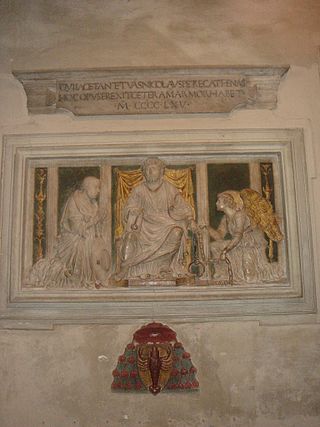
Andrea di Cristoforo Bregno (1418–1506) was an Italian Renaissance sculptor and architect of the Early Renaissance who worked in Rome from the 1460s and died just as the High Renaissance was getting under way.
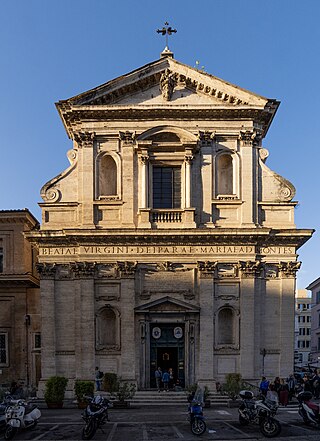
Santa Maria dei Monti is a cardinalatial titular church, located at 41 Via della Madonna dei Monti, at the intersection with Via dei Serpenti, in the rione Monti of Rome, Italy. The church is dedicated to the Blessed Virgin Mary.

Cesare Nebbia (c.1536–c.1614) was an Italian Mannerist painter from Orvieto.

Giuseppe Bartolomeo Chiari, also known simply as Giuseppe Chiari, was an Italian painter of the late-Baroque period, active mostly in Rome.

Pietro Tenerani was an Italian sculptor of the Neoclassic style.
References
- ↑ "Buonvicino, Ambrogio". Encyclopedia Treccani (in Italian).
- ↑ "Catalogue". La Fondazione Federico Zeri. Archived from the original on 11 April 2015.
- Baglione, Giovanni (1733). Giovanni Battista Passeri (ed.). Le Vite de' Pittori, Scultori, Architetti, ed Intagliatori dal Pontificato di Gregorio XII del 1572. fino a' tempi de Papa Urbano VIII. nel 1642 (in Italian). Naples. p. 161 – via Google Books.